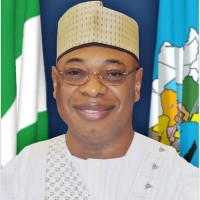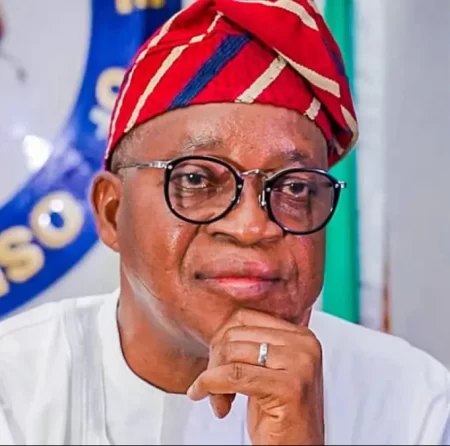
Lagos — African Heads of Navies and Coastguards have called for the need to establish a comprehensive database that would combine marine and maritime data to serve as a mandatory baseline for the development of the continent’s Blue Economy.
This was part of the resolution reached at the end of a two-day International Maritime Conference 2024 held at the Admiralty Conference Centre, Naval Dockyard Limited, Victoria Island, Lagos.
The conference attracted about 400 delegates from 15 countries including African heads of navies and coastguards, maritime security experts, academics, private sector representatives, international partners, and civil society organizations.
Others were representatives from the European Union (EU) and other allied friends of the Nigerian Navy like Benin Republic, Canada, Cameroun, China, Equatorial Guinea, Egypt, France, Ghana, Pakistan, Republic of Congo, Senegal, Spain, South Korea and USA.
There was also representation from the International Maritime Organization (IMO), Interpol, as well as regional security and political organizations like the African Union (AU), Economic Community of West African States (ECOWAS), Economic Community of Central African States (ECCAS), Gulf of Guinea Commission (GGC) and the Inter-regional Coordination Centre (ICC) in Yaoundé, Cameroon.
Other participants include eminent retired and serving senior military officers, accomplished scholars on maritime security and blue economy, captains of industry, international maritime partners as well as relevant local and international maritime stakeholders.
The Conference discussed two main papers: ‘Secured Maritime Environment: A Panacea for Unlocking Africa’s Blue Economy Potentials’ which was delivered by Dr Ifesinachi Okafor-Yarwood. The paper discussed the relationship between socio-economic index on land and maritime security.
The second lecture titled ‘Leveraging Maritime Security Collaboration for Harnessing Blue Economy in Africa: Strategies and Mechanisms for Success’ delivered by Dr Paul Adilikwu, discussed mechanisms through which cooperation for maritime security would improve the Blue Economy in Africa. T
The presentations were followed by interactive sessions during which regional subject matter experts discussed the topics extensively after which the audience made their contributions.
All presentations and discussion focused on 4 thematic areas which were maritime governance, sub-regional, regional and international collaboration, information gathering, processing and sharing and improved funding for infrastructural development.
Some of the resolutions reached at the conference were: to sensitize respective governments on the need to initiate and drive the development of a comprehensive framework for governance and management of the Blue Economy in the Gulf of Guinea and Africa; to facilitate a whole of Government Approach in developing Africa’s Blue Economy through regular meetings, workshops and joint exercises to enhance coordination, collaboration and communication with all relevant stakeholders.
The resolutions reached included: to develop funding mechanism to encourage indigenous shipping and infrastructural development; to facilitate the establishment of special funding such as the Maritime Security Trust Fund to fund maritime security operations for member states; foster public-private partnerships (PPPs) involving governments, maritime industry stakeholders, shipping companies, port operators, and security firms to enhance maritime security capabilities and promote the Blue Economy.
They also agreed to develop human resource capacity in the Blue Economy in areas such as oceanographic research, ship building and maritime security; encourage joint production of naval hardware especially ships and boats to minimize cost and promote uniformity in manufacture or acquisition of operational equipment towards enhancing interoperability.
The resolutions reached were also to seek the participation of maritime security forces at the planning stages of major investments projects in the Blue Economy; encourage regular meetings between the political and military strategic leadership of member states and Improve and promote the welfare and socio-economic well-being of coastal communities to mitigate maritime insecurity towards developing the Blue Economy.
Heads of Navies/Coastguards agreed to give impetus to the operationalization and sustainability of the Combined Maritime Task Force (CMTF) in the GoG and to Set up regional maritime information fusion centers to foster collaboration and information sharing among participating countries, law enforcement agencies, navies, and maritime industry stakeholders.
They also agreed to enhance the capacity of fusion centers through technology, training, and technical assistance to improve their effectiveness in supporting maritime security operations as well as drive regional concerted efforts to combat Illegal Unreported Unregulated fishing, UUF and other maritime crimes in the GoG.
Furthermore, they agreed to sustain and improve training on maritime security for the Blue Economy by tailoring training and exercises to reflect the fundamentals of the Blue Economy and to sustain and improve on regional and international collaboration while also seeking international support.
*Evelyn Usman



